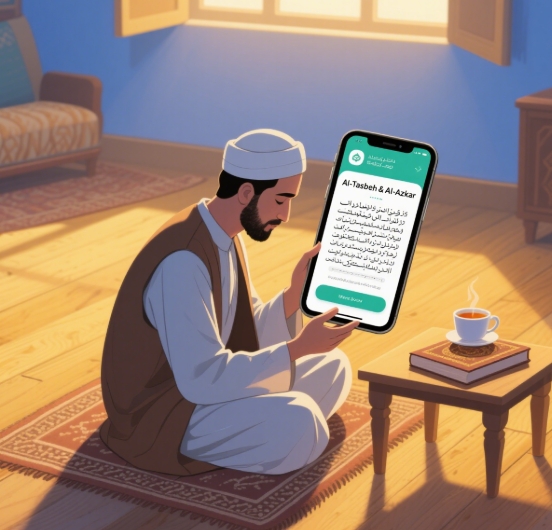Al-Tasbeeh & Al-Azkar: Stillness in Your Pocket
Where Quiet Finds a Companion
There’s something unexpected about opening an app and feeling a hush settle. That’s what happened the first time I tapped into Al-Tasbeeh & Al-Azkar. No endless setup, no distractions—just an immediate space for remembrance. In the middle of a grocery queue, I found myself counting dhikr, thumb brushing the screen with the same instinct I once reserved for woven beads. It didn’t replace tradition—it reshaped how I reached for it.

Your Remembrance, Your Way
One of the most powerful things this app offers is customization—not just in number or phrase, but in meaning. I built a tracker called “Before Deadlines,” pairing calming verses with a slow-paced counter. It became a pre-meeting ritual. Later, I crafted another for “Night Walks,” syncing the soft haptic buzz with footsteps under street lamps. Al-Tasbeeh & Al-Azkar lets you name and shape your spiritual tools, and in doing so, helps you notice your own patterns of stillness.
Meaning in the Moment
I used to struggle with fragmented focus—starting dhikr without finishing, or scrolling endlessly for the “right” verse. The app’s categorized azkar made everything intuitive. A quick tap on “Evening Reflection” last Friday led me to verses I hadn’t read since childhood. And their quiet footnotes? They turned translation into conversation. One line about divine timing lingered long after I locked my phone, staying with me on the bus ride home like a companionable echo.
Tools That Respect Your Energy
Fatigue doesn’t have to stop worship. When migraines dimmed my focus, I switched to auto-play. The measured voice reciting tasbih while I lay in the dark felt less like surrender and more like adjustment. On better days, I’d turn vibration back on—choosing rhythm over audio, syncing with breath. The adaptability isn’t just technical—it’s empathetic. Al-Tasbeeh & Al-Azkar meets you where you are, whether alert or aching.
Design That Steps Aside
Dark mode isn’t just a feature—it’s a retreat. Paired with soft fonts and amber text, it turns the screen into something that feels more like parchment than pixels. Swiping through favorites feels organic, almost analog. And the menu’s simplicity means you find what you need faster than thought. That’s important when remembrance is urgent—not just habitual.
When the Day Pauses
Every Sunday at dusk, I step outside with my tea and phone. Wind in the trees, quiet before dinner. I open the app and scroll to a saved set tied to the word “Patience.” There’s no ceremony, no announcement—but the practice steadies me. I’ve begun associating certain dhikr sets with specific chairs, meals, even weather patterns. The app doesn’t just help me remember—it helps root that remembrance in place and time.
Final Thought
Al-Tasbeeh & Al-Azkar isn’t a replacement for spiritual practice—it’s a companion to it. For those of us living in fragmented minutes and irregular routines, it makes space. It answers quietly. It offers rhythm without rigidity, and reflection without demand. That’s what makes it brilliant—not its features, but how it fades away and lets meaning rise.
Keywords:Al-Tasbeeh & Al-Azkar,tips,dhikr tracker,custom azkar,digital worship









